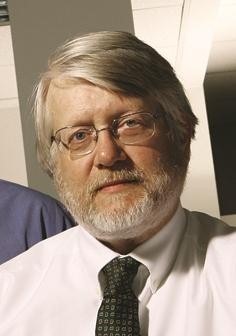
Dr. Glenn Palomaki is assistant director of the Division of Medical Screening and Special Testing at Women & Infants Hospital of Rhode Island and associate professor in the Department of Pathology and Laboratory Medicine, Alpert Medical School at Brown University. He was recently invited to contribute to the debate on breast cancer screening with a commentary in the journal Genetics in Medicine.
PBN: What is the biggest ethical consideration when it comes to genetic screening for breast cancer in the general adult population?
PALOMAKI: Among every 500 women in the general population tested for BRCA1/2 mutations, one will be found to have a mutation that is known to increase the risk of breast cancer. However, another four women will be found to have a mutation that is called a “variant of unknown significance.” It will not be clear whether these variants are associated with increased risk. The psychological impact of such a finding is potentially serious and the future consequences are unknown.
PBN: How many cases of breast cancer might be prevented annually by making skillful use of genetic screening tests?
PALOMAKI: Among every 100,000 20-year-old women in the US, 9,400 will develop breast cancer by age 70. Of these, 132 will have a BRCA1/2 mutation. Stated another way, about 1 in every 72 breast cancers could be attributed to mutations in these genes.
PBN: What kinds of considerations does a woman face once she knows that she possesses the BRCA1/2 mutation?
PALOMAKI: The National Cancer Institute suggests considering three actions. First, earlier, more intensive and more frequent screening tests such as mammography; second, risk-reducing surgeries such as breast removal or removal of the ovaries; and thirdly drug treatment to reduce the risks of developing cancer.
PBN: What have been the major advancements around genetic screening in the past five years?
PALOMAKI: At the beginning of the human genome project in 2001, sequencing an individual’s entire genome would take weeks or months and cost a hundred million dollars. Today, that same information could be obtained via next generation sequencing in a few days at a cost of a few thousand dollars. This technological advance has allowed for rapid development of new knowledge that has not, for the most part, yet transitioned into general patient care. Technologic knowledge is outpacing our ability to know how best to make use of it.
PBN: Is breast cancer genetic screening serving as a forerunner in the field of genetic screening more broadly, and if that’s the case how is that playing out?
PALOMAKI: The breast cancer genes BRCA1 and BRCA2 were identified 20 years ago, but testing for mutations in those genes was limited to those with a strong positive history of cancer until now. Although it is now technically possible for general population testing, we need to learn more about how the DNA test results are understood and used, especially by women who do not have a family history of cancer. In the future, it is likely that an increasing amount of health-related information will be derived from a person’s own DNA (or the DNA from a tumor) that will aid in the prediction, diagnosis, prognosis and treatment of cancer and other complex diseases.












